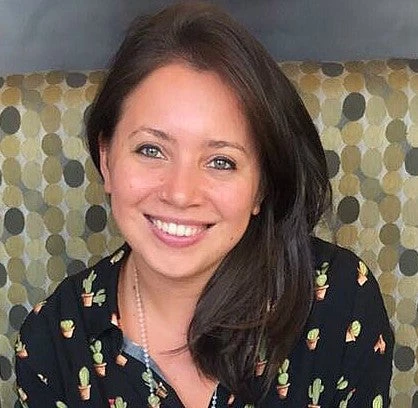 Democratic Republic of the Congo – The Fish Vendors’ Association in Kumbu. Photo: World Bank
Democratic Republic of the Congo – The Fish Vendors’ Association in Kumbu. Photo: World Bank
What is the best way to ensure that refugees are well integrated in host communities?
In the Democratic Republic of Congo (DRC), we were challenged by this question when the country was faced with a cyclical influx of refugees from the Central African Republic (CAR), following the violence stemming from their December 2020 presidential elections. Through the - DRC Eastern Recovery project (STEP) financed by the World Bank, we found that the leadership of local and traditional authorities is essential for sustained refugee integration and inclusion.
The STEP project which operates in 6 provinces – Ituri, North and South Kivu (the East), North and South Ubangi (the North-West), and Kasai-Central (the South), illustrates that investing in inclusive local development committees, composed of representatives from host communities and refugees, is a critical enabling factor for integration and success. STEP was able to promote integration within host communities by increasing refugees’ participation in local development committees and income-generating activities. This approach not only empowered refugees but pre-emptively reduced tensions and encouraged assimilation within the hosting communities. By embracing integration, both refugees and host communities were able to access more jobs, thereby breaking the cycle of dependency and opening doors to other opportunities.
The DRC hosts over half a million refugees - from Rwanda, CAR, South Sudan and Burundi - placing an additional strain on already fragile, isolated host communities many of which are challenged by weak service delivery. For over a decade, the northern provinces of the DRC have had the highest concentration of refugees, with recurring inflows of refugees from CAR, now numbering about 210,000 refugees. The STEP project mobilized funds from the Window for Host Communities and Refugees (International Development Association — an arm of the World Bank that supports low-income countries) which are grants to countries hosting large numbers of refugees, supporting the transition from short-term aid to a sustainable development approach.
STEP delivers an integrated package of social safety net programs, including cash transfers and income-generating activities both in urban and rural areas. It also helps create functioning local development committees and train its members. This approach directly supports aspirations of refugees and host communities to break their cycle of poverty and build better future for themselves and their families. Integration efforts supported by STEP have resulted in inspiring stories of change in both urban and rural areas.
In Gbadolite, the capital city of North Ubangi province, Hamilton, a young refugee from CAR who fled to the DRC, opted for integration into the urban community instead of moving to a refugee camp. Hamilton was selected as one of the first beneficiaries of the Labor-Intensive Public Works program of the STEP project in Gbadolite. With the earnings he received through participation in the program, Hamilton first built a small house in his neighborhood. He further participated in other income-generating activities, working as a Ministry of Social Affairs data collection technician, as part of the STEP-funded social registry activities. With these earnings, he built and equipped his own barber shop on land allocated to him by traditional community leaders. Now Hamilton runs his own barbershop business and he actively trains young Congolese and refugee apprentices, providing them with job opportunities.
 Democratic Republic of the Congo – Hamilton, one of the first beneficiaries of the Labor-Intensive Public Works program of the STEP project, now runs his own barbershop business and also actively trains young Congolese and refugee apprentices, providing them with job opportunities. Photo: World Bank
Democratic Republic of the Congo – Hamilton, one of the first beneficiaries of the Labor-Intensive Public Works program of the STEP project, now runs his own barbershop business and also actively trains young Congolese and refugee apprentices, providing them with job opportunities. Photo: World Bank
In rural areas of the North Ubangi province, STEP focused on the development and training of local development committees, comprising refugees and host community members, encouraging the project beneficiaries to form associations focused on specific income-generating activities. The Fish Vendors’ Association in Kumbu (North Ubangi province) is a good example of efforts of the STEP project to facilitate the formation of associations. This association, which now has 35 members, is thriving, operating independently following the initial support provided under the project. It is helping improve the lives of its members and their families. For example, Lonzoli, the association’s vice president and project beneficiary, has successfully sought to improve her family’s well-being. She has invested in her children’s education and is rebuilding her house which was destroyed by recent floods. Looking ahead, the association hopes to continue expanding its business by acquiring equipment such as a motorized canoe and a cold room, or freezers to store, preserve and sell more fish – by reaching markets in other provinces and in the capital city, Kinshasa.
Our experience with the STEP project shows that there is a need to change the paradigm in refugee crisis management and move towards longer term development investments within host communities. This helps create economic opportunities, enhance social inclusion and build resilience for refugees. Within this context, empowering local leaders to drive the integration of refugees within host communities is paramount. Hamilton, Lonzoli and the members of the fish sellers’ association have shown that economic empowerment and social inclusion, in host communities, is feasible, even in challenging contexts.







Join the Conversation